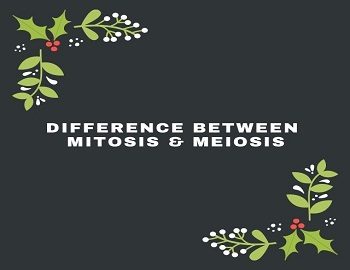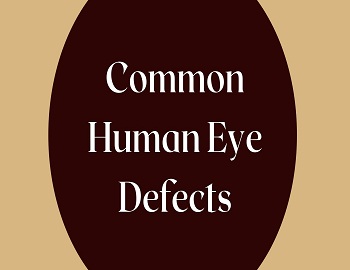Difference between Mitosis and Meiosis:
The following are the difference between Mitosis and Meiosis-
| Mitosis | Meiosis |
|---|---|
| It takes place in somatic cells. | It takes place in the reproductive cells (testes and ovaries). |
| It produces two daughter cells with same number of chromosomes as the parent cell. | It produces four daughter cells with half the number of chromosomes as the parent cell. |
| The daughter cells are similar to the parent cell qualitatively and quantitatively. | The daughter cells are different from their parent cell qualitatively. |
| It is responsible for growth and development of an organism. | It is responsible for reproduction of an organism. |
| Its prophase is of short duration. | Its prophase is of long duration and is sub-divided into sub-stages. |
| No pairing of chromosomes takes place. | Pairing of homologous chromosomes (one maternal and one paternal) occurs. |
| No crossing over and chiasmata formation takes place. | Crossing over and chiasmata formation takes place for exchange of hereditary materials. |
| During metaphase, the centromeres of individual chromosomes lie exactly on an equatorial plane and their arms towards the poles. | During metaphase I, the centromeres are lined up in two planes which are parallel to each other. Centromeres face towards the poles and their arms are directed toward the equator. |
| During anaphase, division of centromeres occur and chromatids of the chromosomes separate and move towards the poles. | During anaphase I, the centromeres does not divide into two. The chromosomes of homologous pairs separate and move towards opposite poles. |
| The telophase is of universal occurrence and is followed by cytoplasmic division. | The first telophase is not of universal occurrence and in meiosis, since the dividing may directly pass from anaphase to 2nd prophase. |
| The time taken for the mitotic division is much shorter than meiotic division. | The time taken for the meiotic division is much longer than mitotic division. |









Comments (No)